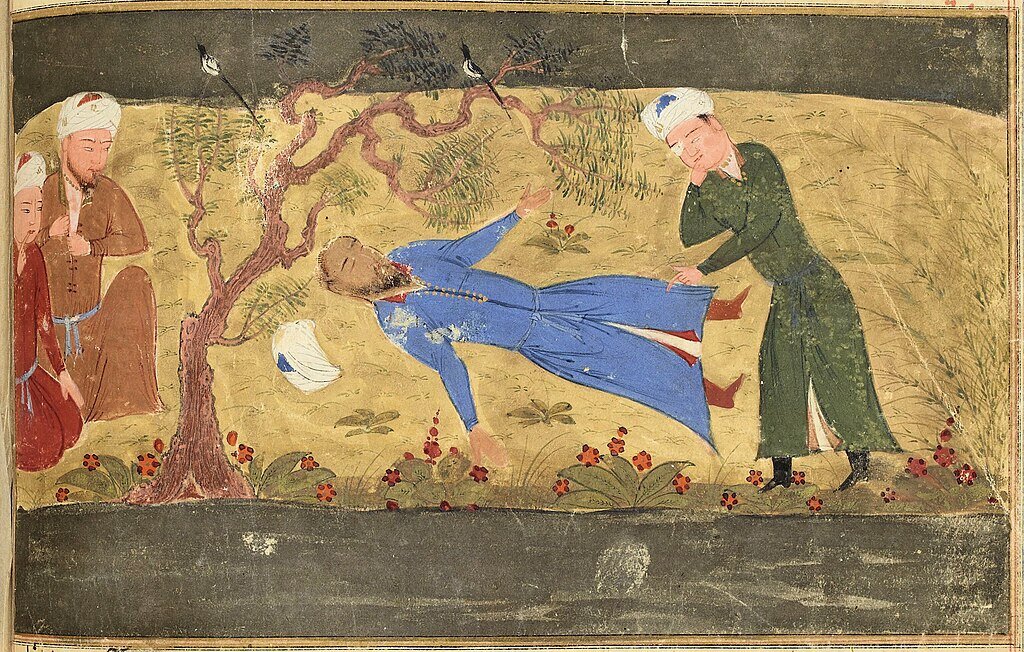The attitude of historians to Khorezm Shah Ala ad-Din Muhammad II was always not very good. He lived sinfully and died ridiculously — this is the general opinion about him. In our country it was best expressed by a wonderful Soviet writer Vasily Yan. In his book, the ruler of Khorezm is more interested in his three hundred and first wife than in the reflection of the Mongol invasion.
But in fact, it was quite a young and beaten by life man with an outstanding military career. Early in his twenty-year reign, the Shah repelled an invasion by the Afghan Gurids, who took many eastern fortresses. He then successfully fought the Karakitai, and managed to defeat them after his initial defeat.
He defeated the Karakhanids in the north, greatly expanding his holdings. And in Iran, the state of the Atabeks of Azerbaijan came under his suzerainty. Ala ad-Din planned a campaign to Baghdad, so that the Caliph officially recognized his Shah title, and only a snowstorm in the mountains, which killed many soldiers, then forced him to turn around.
He was by no means a coward — by his order Khorezmians got rid of Genghis Khan’s embassy, and then gathered forces and moved on the enemy. In a heavy counter battle on the Irgiz River both sides suffered losses, but Subudai and Tsarevich Dzhuchi did not have orders to aggravate the situation, and therefore at night after the battle preferred to retreat.

Nevertheless, Khwarizmshah did not withdraw his entire army to confront the Mongols, but instead his scattered forces locked themselves in the cities. This gave Genghis Khan the advantage of initiative, and in a lightning campaign the indecisive foe was smashed piecemeal. Ala ad-Din fled to Iran, where he died alone of illness, and his son and heir Jalal ad-Din was no longer able to win the war, despite desperate resistance.
So why didn’t Khorezm strike with all its might to defeat the Mongols?
The state of Khwarizmshah was a strong and wealthy but fairly young power. At least a third, if not more, of its possessions was conquered personally by Ala ad-Din Mohammed II. Therefore, he had every reason to fear uprisings that might start in the event of a Mongol invasion. Especially since this third was just on the border with Genghis Khan’s possessions.
The second reason was that very fleeting skirmish on the Irgiz River. There it became clear that the Mongols were at least an equal opponent — they separated from the Khorezmian army only after an exceptionally hard fight. And the fact that they left at night — so they did not want to fight, they sent ambassadors with a peace proposal, explaining that they were just walking on foreign territory, watching gophers grazing.

Well and the main reason — after all this Khorezmshah was sure that the war would be hard. But he himself, as a former nomad, knew very well that the armies of steppe people cannot compare with the armed forces of civilized nations in such an important quality as the ability to take fortifications. He assumed that Genghis Khan would come and go as he came — he would plunder the countryside, steal a couple of cows, and that was all.
Given the entire military history of Central Asia, defensive tactics were promising. No one there knew that each of the four corps sent to conquer the empire of Khorezm had a contingent of Chinese and Tangut military engineers who had eaten dog on siege warfare.
Genghis Khan and his generals were perfectly capable of storming fortresses — they had considerable experience in the Tangut state of Western Xia and in northern China, which was ruled by the Jurchens. But this was not widely known, and the Islamic world thought that the Mongols, like other nomads, did not know how to take cities.

Fortifications of Old Urgench
Ala ad-Din gave orders to begin extensive work to strengthen the walls, by the time of the invasion they were close to completion, but it did not help Khorezm. The entire eastern part of the country had been captured in one swift jack rush, and it was too late to gather forces. Half of those who were capable of holding arms had laid down their heads in the defense of Bukhara, Gurgandj, Otrar, and Samarkand. The new Shah was exceptionally brave, but he could not change anything.
